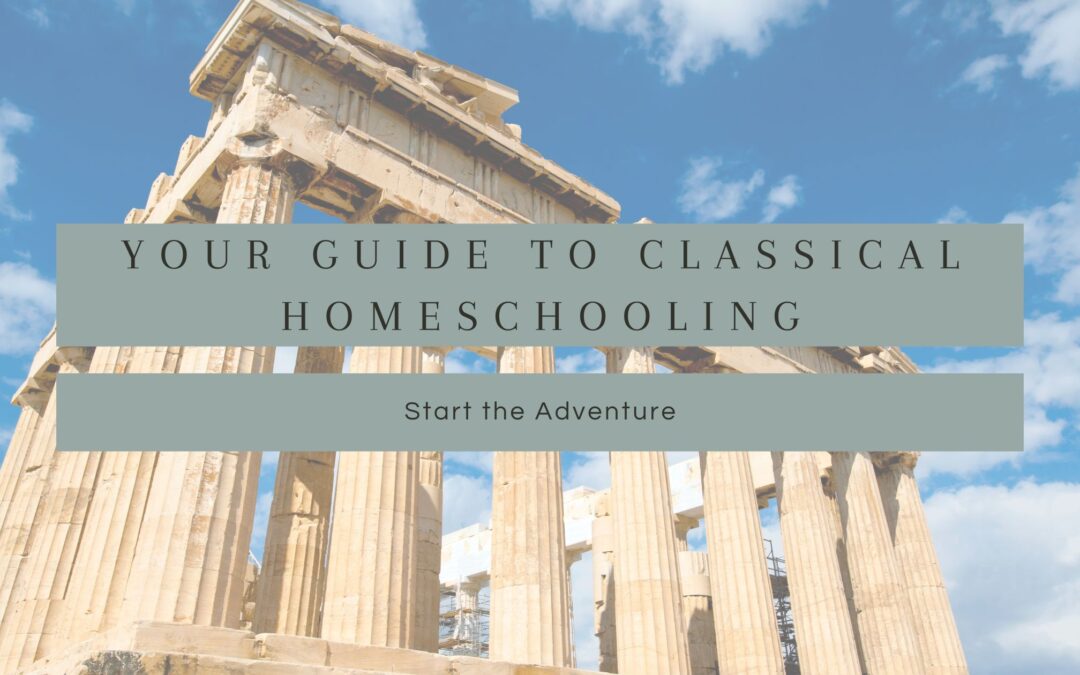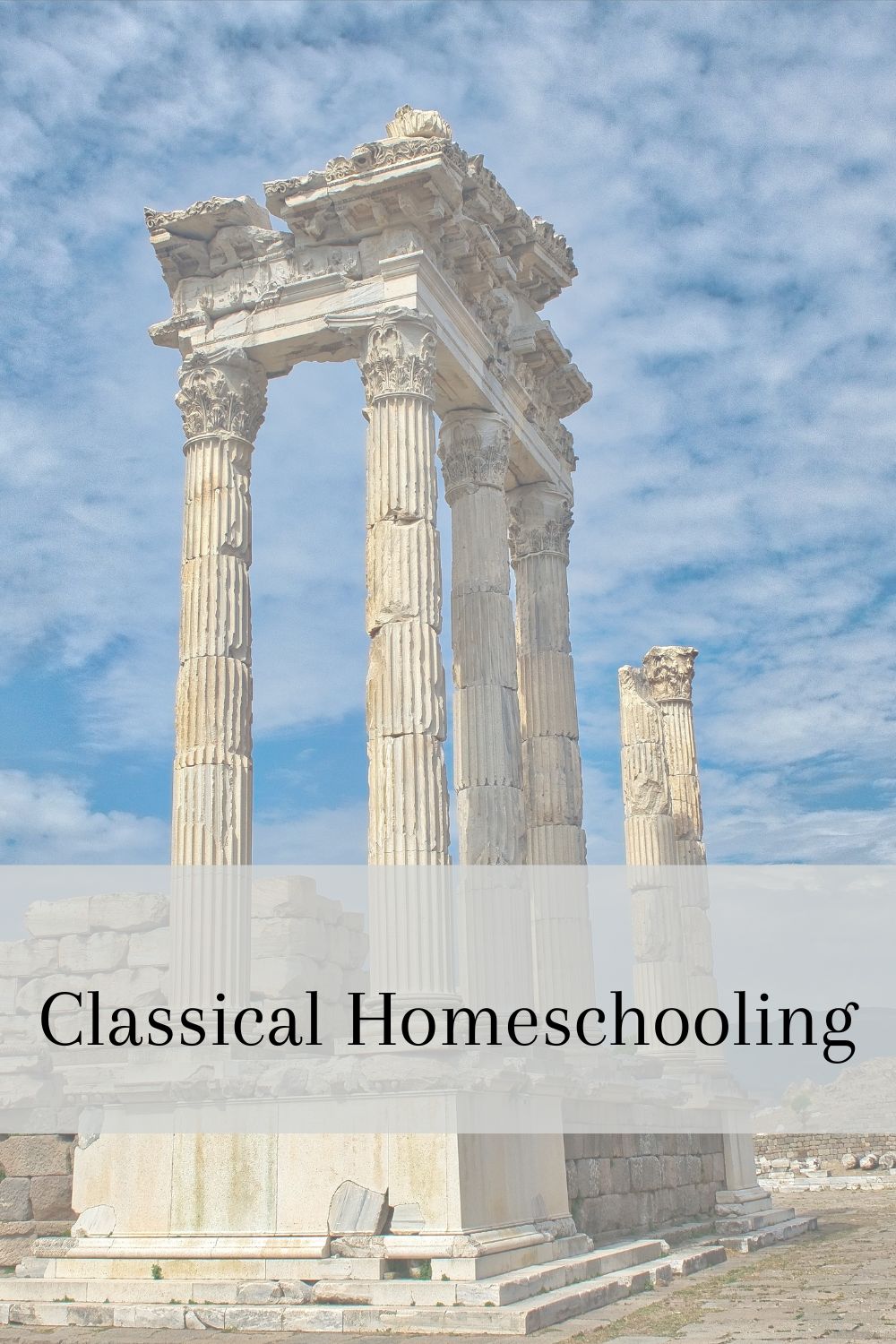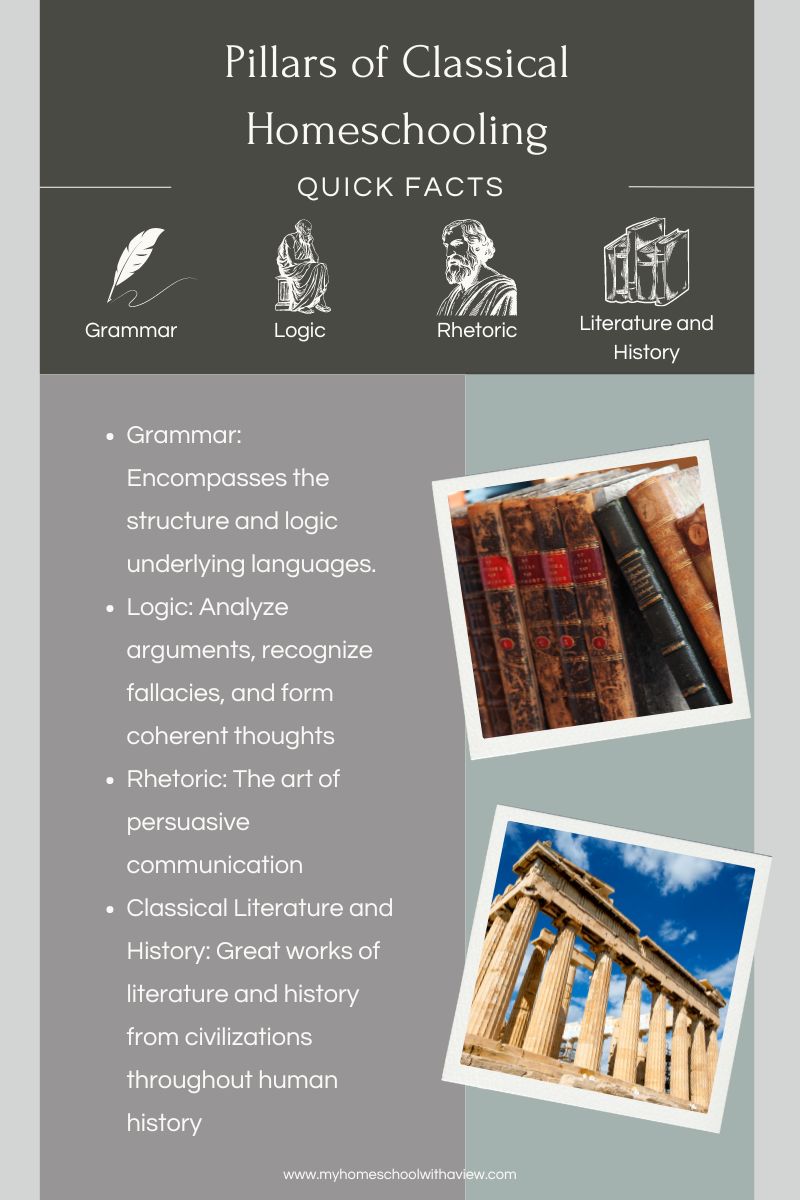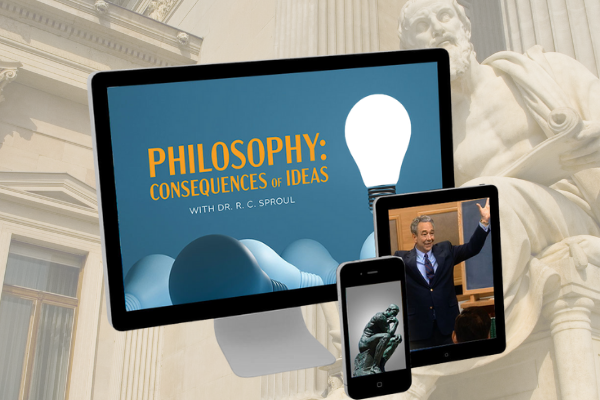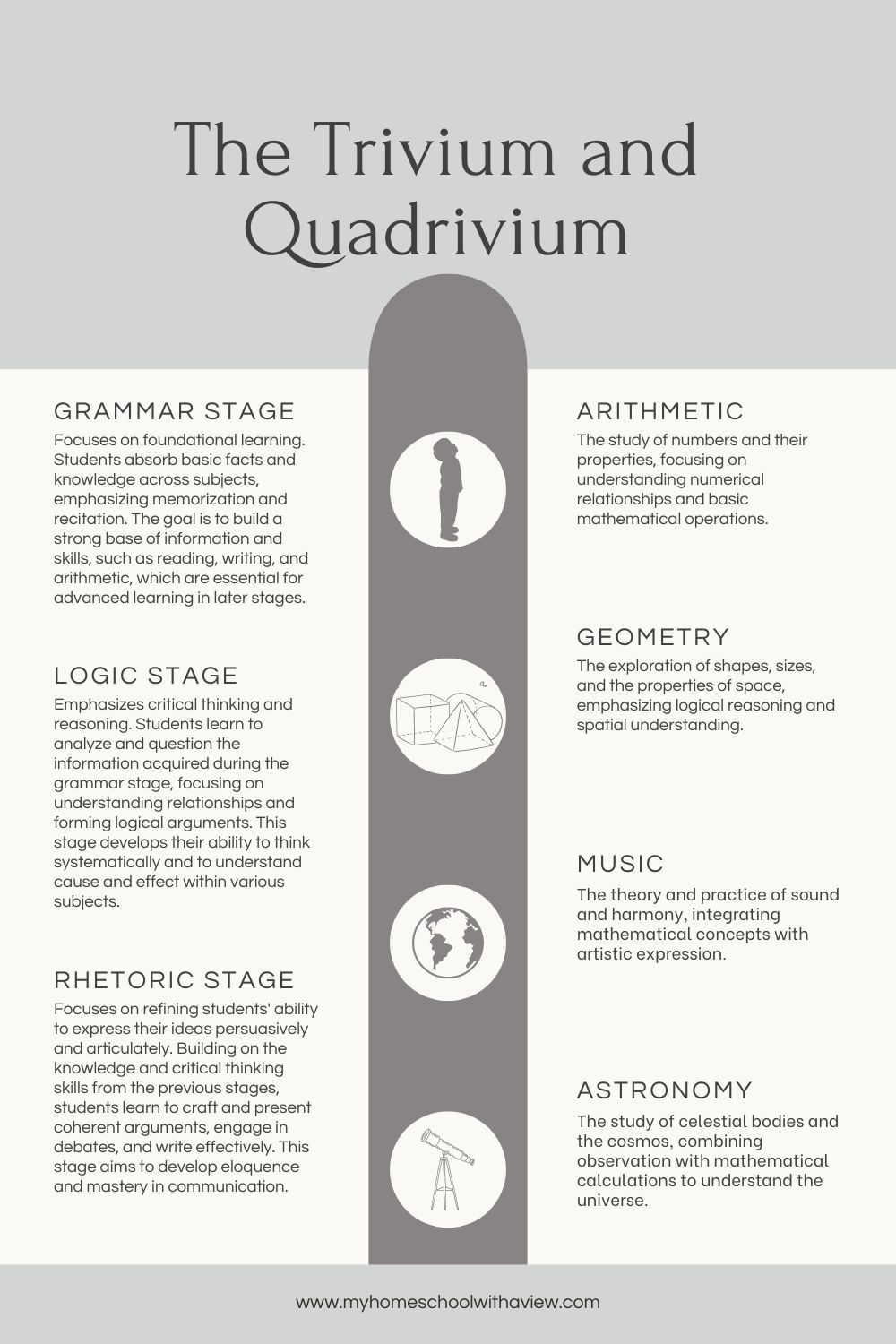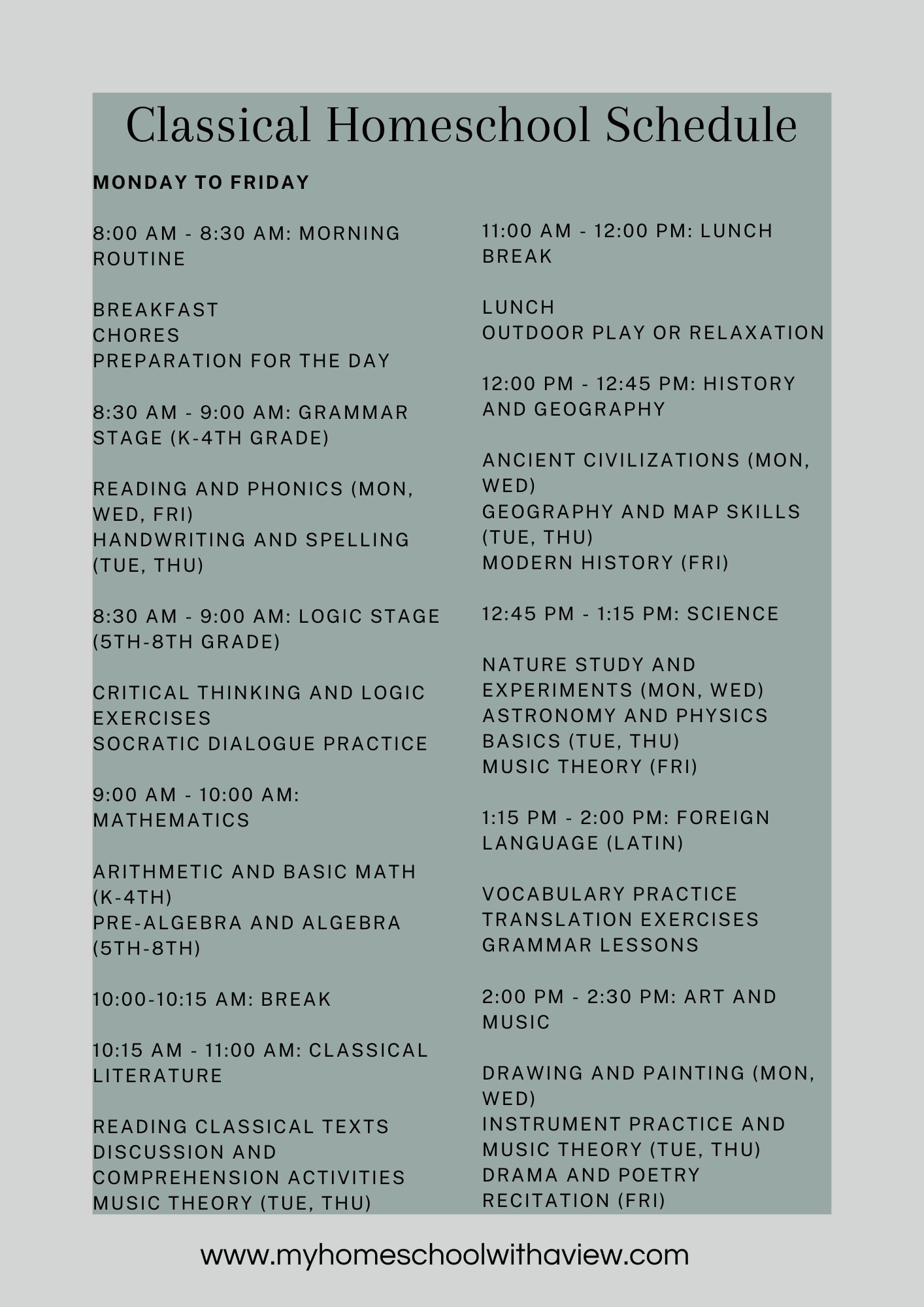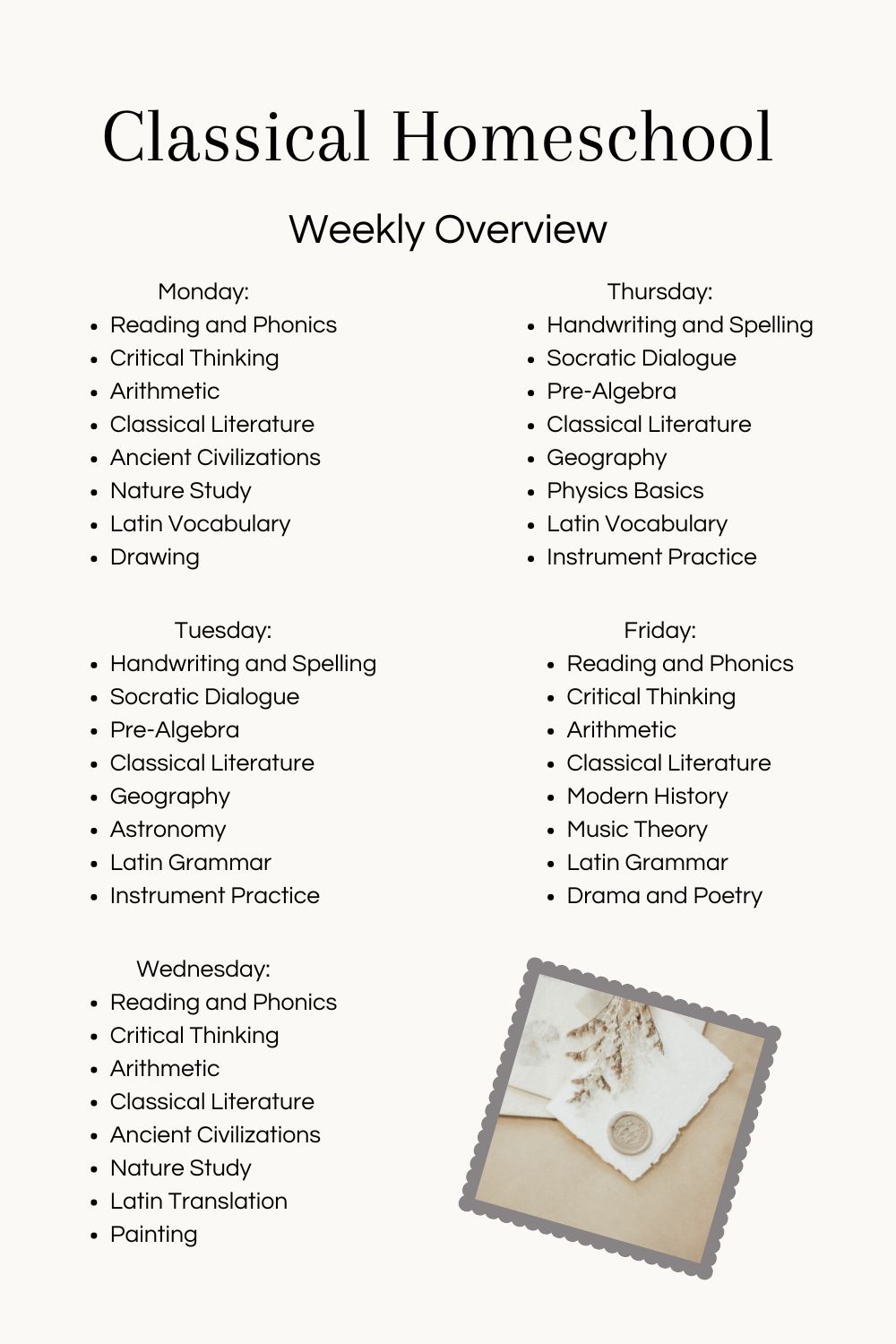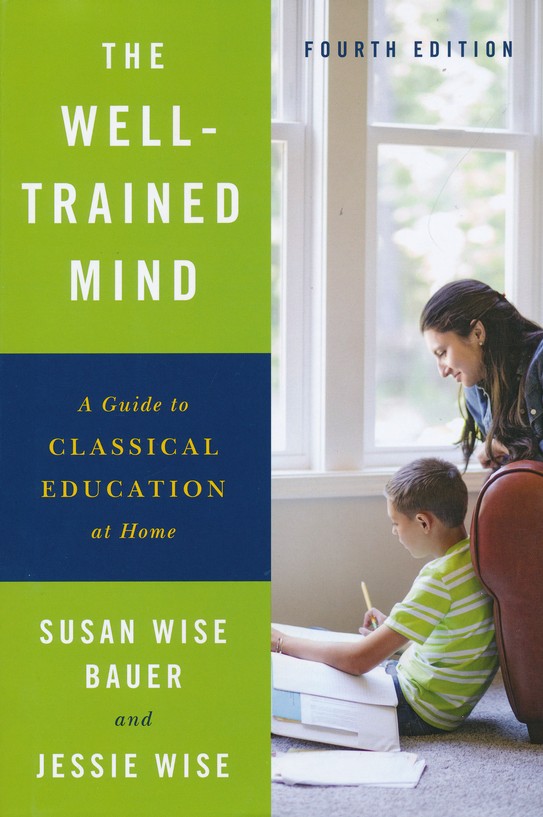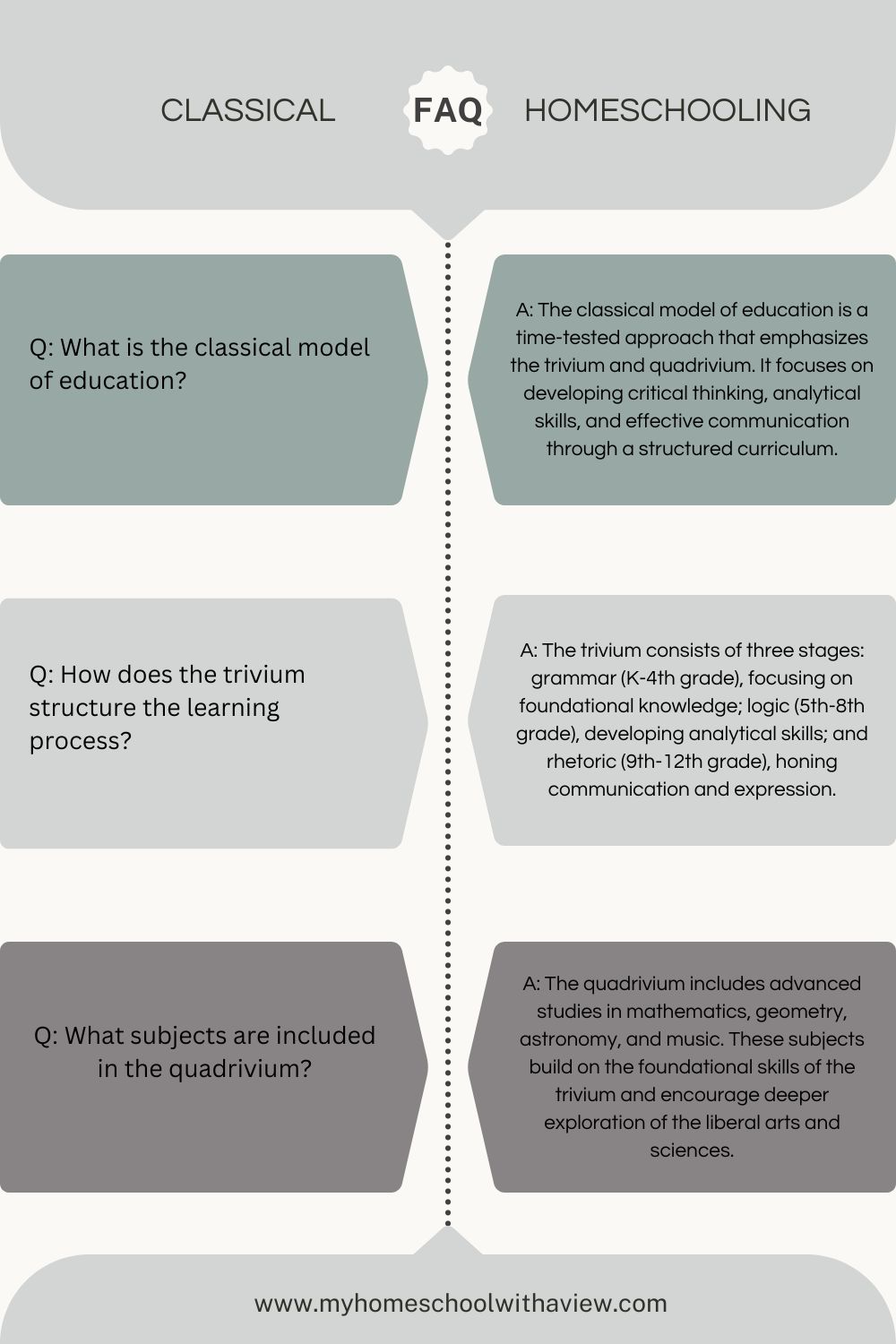This post is about the classical homeschooling method, structure, and classical homeschool curriculum.
This post contains affiliate links and My Homeschool with a View, LLC participates in the Amazon Associates program. If you make a qualifying purchase through our links, we earn a commission at no additional cost to you . Thank you for supporting this site! You can read my affiliate and advertising disclosure here.
Classical homeschooling has gained popularity in the modern homeschooling movement. Among the various homeschool methodologies, the classical homeschooling model of education stands out for its rigorous and structured approach to homeschooling.
I have always been drawn to the beauty of the classical approach to homeschooling. Learning history in a four year cycle and immersing my children in classical literature are just some of the elements that make classical homeschooling appealing to me.
In this comprehensive guide, we’ll explore the classical homeschooling model, how to implement it in your homeschool, and the benefits it offers homeschool families.
This post is all about classical homeschooling.
Understanding Homeschooling Classical Education
History of Classical Education
Rooted in the rich tapestry of ancient Greek and Roman educational philosophies, the classical model of education has stood the test of time. It has wielded profound influence across centuries of human civilization.
Originating in the cradle of Western civilization, this model was meticulously crafted to nurture not just intellect, but also character. It is an essential blend of wisdom and virtue.
Drawing inspiration from the scholars and philosophers of antiquity, the classical model is more than a mere pedagogical framework. It’s a holistic approach to education that seeks to mold individuals into well-rounded, discerning thinkers.
At its core lies a structured curriculum meticulously designed to guide students through intellectual discovery and moral development.
By immersing students in the timeless wisdom of classical literature, philosophy, and history, this model equips them with a deep understanding of the human experience.
Through the study of ancient languages like Latin and Greek, students gain access to the foundational texts that have shaped our collective consciousness.
Core Principles of Classical Home Education
At the core of the classical model lie two fundamental pillars: the trivium and quadrivium. These frameworks serve as a guide to classical home education.
The trivium, the first of these pillars, is akin to the bedrock upon which all subsequent learning is built. It focuses on instilling in students the foundational skills necessary for intellectual growth and development.
Here, the emphasis is on mastering the basics of language, logic, and rhetoric – the essential tools of critical thinking.
Moving beyond the trivium, we encounter the quadrivium, which represents the next stage of intellectual exploration.
While the trivium lays the groundwork, the quadrivium propels students into the realm of advanced studies in the liberal arts and sciences.
Here, subjects such as mathematics, geometry, astronomy, and music take center stage. Students are offered a deeper understanding of the natural world and its underlying principles.
Through the quadrivium, students transcend the boundaries of mere knowledge acquisition, delving into the realms of abstract thought and theoretical inquiry.
Together, the trivium and quadrivium form a cohesive framework that shapes and informs the entirety of a student’s educational experience.
The Trivium: Foundation of Classical Home Education
Grammar Stage (K-4th Grade)
Logic Stage (5th-8th Grade)
As students progress into the logic stage of the classical model, they enter a stage of intellectual exploration. Here, the focus shifts from rote memorization to the cultivation of critical thinking and analytical prowess.
Armed with the tools of logic, students dissect information, discern patterns, and unravel the intricacies of complex concepts.
Central to the logic stage is the cultivation of inquiry and skepticism, as students are encouraged to question the underlying principles and assumptions of various subjects. By asking probing questions such as “why” and “how,” students deepen their understanding of the world around them and refine their reasoning abilities.
Through rigorous engagement with logic and dialectic, students emerge not only as informed scholars but also as astute thinkers capable of navigating the complexities of an ever-changing world.
Rhetoric Stage (9th-12th Grade)
In the rhetoric stage, students ascend to new heights of intellectual mastery as they refine their ability to communicate effectively. Building upon the foundation laid in earlier stages, this phase focuses on the art of persuasion and eloquence.
Here, students are challenged to articulate their thoughts with clarity and conviction, harnessing the power of language to sway hearts and minds.
At this advanced level, students delve into the intricacies of rhetoric, mastering the techniques of argumentation, debate, and oration. Through rigorous practice and feedback, they learn to craft compelling narratives, marshal evidence, and deliver persuasive speeches.
Armed with these skills, students emerge from the rhetoric stage not only as confident communicators but also as agents of change, capable of influencing others and shaping the course of discourse in society.
The Quadrivium: Advanced Studies in the Classical Homeschool Method
Mathematics
Within the quadrivium, mathematics goes beyong basic arithmetic, delving into the realms of geometry and algebra.
Here, students grapple with abstract concepts and mathematical principles, honing their analytical prowess and problem-solving abilities.
Through the study of geometry, they explore the intricacies of spatial relationships and geometric forms, while algebra equips them with the tools to tackle complex equations and mathematical proofs.
These mathematical studies not only prepare students for higher education but also equip them with practical skills essential for navigating everyday life.
By cultivating logical thinking and problem-solving skills, students develop a robust foundation upon which to build their academic and professional endeavors.
From engineering to finance, the skills acquired through the study of mathematics in the quadrivium serve as invaluable assets in a rapidly evolving world.
Geometry
Geometry within the quadrivium, has students learning to decipher the intricate tapestry of spatial relationships and forms. Here, they explore the geometric properties of shapes, angles, and figures, unraveling the mysteries of the physical world.
Through hands-on exploration and problem-solving, students develop a deeper understanding of how objects interact in space, laying the groundwork for deeper insights into the natural and built environment.
As students immerse themselves in geometry studies, they discover the inherent beauty and order that underpins mathematical structures.
Through this exploration, students not only gain a deeper appreciation for the mathematical principles governing the world around them but also cultivate a sense of wonder and curiosity that fuels their intellectual growth.
Astronomy
In classical education, studying astronomy isn’t just about memorizing facts about planets and stars. It’s about embarking on a cosmic journey that merges science with deep questions about our existence. By looking up at the night sky, students begin to ponder the vastness of space and our tiny place within it.
Astronomy isn’t just about telescopes and calculations; it’s about grappling with the big questions of life. What’s out there beyond our planet? Are we alone in the universe? By studying astronomy, students expand their minds and gain a broader perspective on our place in the grand scheme of things.
Music
In the classical homeschooling framework, music isn’t just about playing instruments or singing. It’s also an exploration of the mathematical underpinnings of sound.
By studying music, students delve into the rhythms, melodies, and harmonies that make up the fabric of musical composition.
They discover how mathematical principles govern musical structures, from the ratios of notes to the patterns of chords, unlocking a deeper understanding of harmony and proportion.
But music isn’t just about numbers and equations; it is also a creative expression. Through music, students develop their cognitive abilities, sharpening their focus and enhancing their memory.
Whether composing a melody or performing a piece, students tap into their innate creativity, expressing emotions and ideas in a language beyond words.
By embracing music as part of the classical education experience, students not only enrich their minds but also nourish their souls, fostering a love for the art of sound.
Implementing the Classical Model of Education in Homeschooling
Classical Curriculum for Homeschool
Choosing the right curriculum is crucial for effectively implementing the classical model in a homeschool setting. The classical model’s success depends on finding programs that align well with its stages – the trivium and the quadrivium.
You want a curriculum that offers a balanced and comprehensive education, covering everything from foundational skills in grammar to advanced subjects like geometry and music.
When selecting a curriculum, consider well-known publishers that specialize in classical education. For instance, Memoria Press offers a variety of resources that follow the classical model, providing structured and thorough materials for each stage of learning.
Another popular option is Classical Conversations, which emphasizes community-based learning and integrates the trivium stages into its programs.
By choosing a curriculum from reputable publishers like these, you ensure your homeschool journey aligns with the classical education philosophy, giving your child a solid foundation for lifelong learning.
Daily and Weekly Homeschool Schedules
Structuring daily and weekly schedules is key to balancing different subjects in your homeschool. It ensures you cover all parts of the curriculum without overwhelming your child.
By setting aside specific times for each subject, you make sure nothing gets neglected and everything gets the attention it deserves.
Consistent routines are also vital for developing good study habits and time management skills. When students know what to expect each day, they can focus better and work more efficiently.
A regular schedule helps them learn to manage their time, prioritize tasks, and build a sense of responsibility. This consistency sets them up for success, both in their homeschooling and in their future endeavors.
Sample Daily Schedule for Classical Homeschooling
Monday to Friday
8:00 AM – 8:30 AM: Morning Routine
- Breakfast
- Chores
- Preparation for the day
8:30 AM – 9:00 AM: Grammar Stage (K-4th Grade)
- Reading and Phonics (Mon, Wed, Fri)
- Handwriting and Spelling (Tue, Thu)
8:30 AM – 9:00 AM: Logic Stage (5th-8th Grade)
- Critical Thinking and Logic Exercises
- Socratic Dialogue Practice
9:00 AM – 10:00 AM: Mathematics
- Arithmetic and Basic Math (K-4th)
- Pre-Algebra and Algebra (5th-8th)
10:00-10:15 AM: Break
10:15 AM – 11:00 AM: Classical Literature
- Reading classical texts
- Discussion and comprehension activities
11:00 AM – 12:00 PM: Lunch Break
- Lunch
- Outdoor play or relaxation
12:00 PM – 12:45 PM: History and Geography
- Ancient Civilizations (Mon, Wed)
- Geography and Map Skills (Tue, Thu)
- Modern History (Fri)
12:45 PM – 1:15 PM: Science
- Nature Study and Experiments (Mon, Wed)
- Astronomy and Physics Basics (Tue, Thu)
- Music Theory (Fri)
1:15 PM – 2:00 PM: Foreign Language (Latin)
- Vocabulary practice
- Translation exercises
- Grammar lessons
2:00 PM – 2:30 PM: Art and Music
- Drawing and Painting (Mon, Wed)
- Instrument Practice and Music Theory (Tue, Thu)
- Drama and Poetry Recitation (Fri)
Classical Homeschool Weekly Overview
Monday:
- Reading and Phonics
- Critical Thinking
- Arithmetic
- Classical Literature
- Ancient Civilizations
- Nature Study
- Latin Vocabulary
- Drawing
Tuesday:
- Handwriting and Spelling
- Socratic Dialogue
- Pre-Algebra
- Classical Literature
- Geography
- Astronomy
- Latin Grammar
- Instrument Practice
Wednesday:
- Reading and Phonics
- Critical Thinking
- Arithmetic
- Classical Literature
- Ancient Civilizations
- Nature Study
- Latin Translation
- Painting
Thursday:
- Handwriting and Spelling
- Socratic Dialogue
- Pre-Algebra
- Classical Literature
- Geography
- Physics Basics
- Latin Vocabulary
- Instrument Practice
Friday:
- Reading and Phonics
- Critical Thinking
- Arithmetic
- Classical Literature
- Modern History
- Music Theory
- Latin Grammar
- Drama and Poetry
Classical Education Homeschool Resources
A variety of resources are essential to support a classical education curriculum. Classical literature, historical texts, and scientific works form the backbone of this educational approach.
Many of these materials can be found for free in the public domain.
Historical texts offer insights into the past, helping students understand the events and people that have shaped our present. Scientific works, on the other hand, encourage curiosity and a deeper understanding of the natural world.
To access these resources, libraries, online databases, and educational websites are invaluable.
To learn how to implement this homeschool style, The Well-Trained Mind by Susan Wise Bauer is a fantastic guide that offers a comprehensive list of recommended readings and resources tailored for classical education. This book can help parents and educators select the right materials for each stage of the trivium and quadrivium.
Additionally, libraries offer a treasure trove of classical texts and historical documents.
By leveraging these resources, you can create a rich and engaging educational experience that aligns with the classical model.
Benefits of the Classical Model for Homeschoolers
Development of Critical Thinking
One of the primary benefits of the classical model is the cultivation of critical thinking skills through a structured and rigorous curriculum. Students learn to analyze information, form logical conclusions, and present reasoned arguments.
Strong Academic Foundation
The systematic approach of the classical model provides students with a strong academic foundation, preparing them for higher education and lifelong learning. This model emphasizes mastery of subjects, ensuring students thoroughly understand each topic before moving on.
Character Formation
Beyond academics, the classical model also emphasizes character formation, teaching students virtues such as discipline, perseverance, and integrity. These qualities are essential for personal growth and success in all areas of life.
Challenges and Solutions in Classical Homeschooling
Time Management
Managing time effectively is a common challenge for homeschooling families, particularly with the intensive demands of the classical model. Creating a structured schedule and setting clear priorities can help ensure all subjects are covered without overwhelming students.
Balancing Flexibility and Structure
Striking the right balance between flexibility and structure is key to making the classical model work in a homeschool environment. Flexibility allows you to adapt lessons to your child’s interests and pace.
If your child is fascinated by ancient Egypt, you can spend more time on that topic, diving deeper into its history and culture. This personalized learning keeps your child engaged and makes education more enjoyable.
At the same time, structure ensures that educational goals are met and that your child is progressing through the curriculum. Setting a daily and weekly schedule helps maintain consistency and covers all necessary subjects.
For practical help, consider using a planner to outline what needs to be done each day. Break the day into blocks of time for different subjects, but remain open to making adjustments as needed.
For example, if a math lesson takes longer than planned, don’t be afraid to extend it and adjust the schedule accordingly.
Balancing flexibility with structure creates a harmonious learning environment where your child can thrive academically and stay motivated.
Embracing the Classical Model for a Bright Future
Embracing the classical model of education for homeschooling can be a rewarding and enriching experience, offering students a robust and well-rounded education that prepares them for the future. This model not only imparts knowledge but also cultivates wisdom and virtue, laying the groundwork for a lifetime of learning and personal growth.
FAQ About Classical Homeschooling
What is the classical model of education?
The classical model of education is a time-tested approach that emphasizes the trivium and quadrivium. It focuses on developing critical thinking, analytical skills, and effective communication through a structured curriculum.
How does the trivium structure the learning process?
The trivium consists of three stages: grammar (K-4th grade), focusing on foundational knowledge; logic (5th-8th grade), developing analytical skills; and rhetoric (9th-12th grade), honing communication and expression.
What subjects are included in the quadrivium?
The quadrivium includes advanced studies in mathematics, geometry, astronomy, and music. These subjects build on the foundational skills of the trivium and encourage deeper exploration of the liberal arts and sciences.
Can the classical model be adapted for homeschooling?
Yes, the classical model can be effectively adapted for homeschooling. With careful curriculum selection, structured schedules, and access to resources, families can successfully implement this educational approach at home.
What are the main benefits of classical homeschooling?
The classical model offers numerous benefits, including the development of critical thinking skills, a strong academic foundation, and character formation. It prepares students for higher education and lifelong learning.
This post is all about classical homeschooling.
Read about other homeschool styles:
Everything You Need to Know About Traditional Homeschooling
Charlotte Mason Homeschooling: Unveiling a Beautiful Education
My Tale of Homeschool Styles: From Classical to Now – My Homeschool with a View

